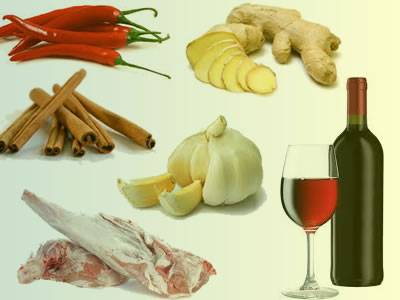In winter, When your skin exposes to very cold temperatures, you may get frostbite or chapped skin. Frostbite and chapped skin are two different medical conditions that the skin and other tissues are damaged due to extreme cold. As you may not notice that, people who suffer from frostbite usually do not have chapped skin, and people who have chapped skin usually do not have frostbite. Or at least, frostbite and chapped skin never occurs at the same area of the skin.
Why people suffer either frostbite or chapped skin
Why frostbite and chapped skin never occurs on the same person or at least on the same part of the body? The factor is the condition of the moisture/dry of the body. When the body is out of balance of moisture/dry, then the body in cold temperatures will either get frostbite or chapped skin:
If the body is over moisturized, the person will tend to get frostbite in winter. Dampness (or too much moisture) in the body is the cause of frostbite.
If the body is dry, the person will tend to get chapped skin in winter. Dryness (or too less moisture) in the body is the cause of chapped skin.
So we can say that, the people who have chapped skin in winter usually “drier” than the people who suffer from frostbites in winter. In other words, the people who suffer from frostbites is “wetter” than the people who have chapped skin.
How to treat frostbite and chapped skin with warming foods and herbs
Generally, to treat frostbite and chapped skin in winter, you should keep your body warm, avoid exposure to cold temperatures. If you must be outdoors due to work or any other reasons, wear thick coat, mittens or gloves, and socks. Other than this, you can consider to eat something that has warming properties.
According to the traditional medicine and food theory, when talking about a warming food, it does not mean the food is heated by an oven or a stove. It means that the food by natural has warming properties. For example, ginger or chili pepper, even you eat them in cold temperature, they can still make your body warm.
All hot spices have warming properties. These spices include:
Ginger
Chili pepper
Black pepper
Cinnamon
Turmeric
Cumin
Fennel
Fenugreek
Garlic
Mustard
Onion
There are other foods and herbs that may not have a hot taste, and may not make your body warm immediately, but still have warming properties, such as:
Mutton
Chicken
Beef
Brown sugar
Black tea
Coffee
Wine
Spirits
Ginseng
Antler velvet
Astragalus (huang qi)
Dang gui (dong quai)
Frankincense
Myrrh
Consuming these foods and herbs can stimulate your blood circulation and warm your body. Therefore they are very effective in treating and relieving frostbite and chapped skin.
How to treat frostbite and chapped skin with foods and herbs that have drying or moisturizing properties
When treating frostbite or chapped skin, another factor that should be considered is the body’s balance of moisture/dry.
Since over-moisturized is a factor that causes frostbite, consuming drying foods and herbs can expel dampness from the body, and treat frostbite. So Warming and drying foods and herbs are what you need to prevent and treat frostbite in winter if you often suffer from frostbite in a cold season:
– Frostbite treatment = Warming + drying foods and herbs
Please note, almost all the above warming foods and herbs, by natural, have drying properties. Other than these, the following foods also have drying properties:
Potato
Corn
Beans
oatmeal
Wheat
Apple
Orange
Since dryness is a factor that causes chapped skin, consuming moisturizing foods and herbs can moisturize the body, and relieve chapped skin. So Warming and moisturizing foods and herbs are what you need to prevent and treat chapped skin in winter if you often suffer from chapped skin in a cold season:
– Chapped skin treatment = Warming + moisturizing foods and herbs
The following foods have moisturizing properties:
Honey
Milk
Butter
Egg
Pear
Strawberry
Banana
Eggplant
Cucumber
Tomato
Carrot
Winter melon
Rice
Pork
Seaweed
Tofu
Oyster
Green tea
White sugar
Rock sugar
Coconut
Please note, when we talk about a food that has warming, drying or moisturizing properties, you should know that, usually its effects are mild. Due to the mild effects, so you should not expect that the problem will be cured after consuming the foods or herbs a couple of days. It takes time to see the effects of a food therapy.
If you often suffer from frostbite or chapped skin in winter, selecting a diet according to your moisture/dry condition will not only prevent and treat your winter problems, also can restore your body’s health balance.
For more information about winter remedies, go to Natural Remedies Center: http://www.naturalremediescenter.com/treat/winter-remedies/



